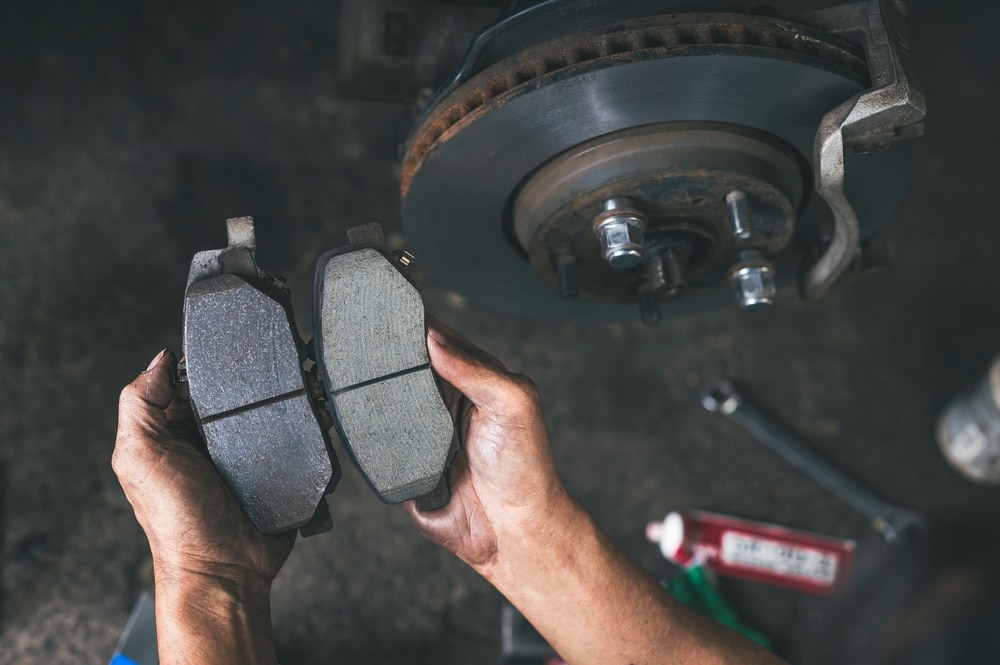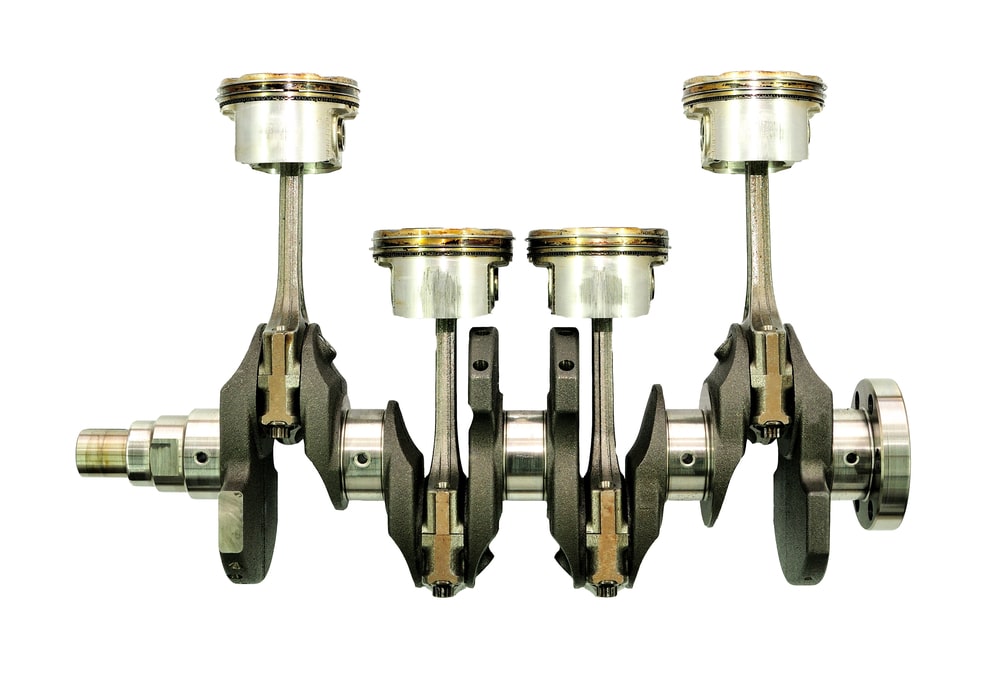Brake Pads
Brake pads are one of the most regularly replaced parts on any vehicle, yet few drivers think about them—until something changes. A strange sound. A sudden warning light. A drop in braking confidence.
That’s where this guide comes in.
At Roade Main Garage in Northampton, we’ve carried out thousands of brake inspections and replacements. We’ve seen what happens when brake pads are replaced on time—and what can go wrong when they’re not. This blog is built on that real-world experience.
You’ll find everything you need to know: how brake pads work, why they wear out, what affects their lifespan, and how to spot the signs that it’s time for a change.
If you’re based in Northampton, Milton Keynes or nearby, and want expert advice you can trust, read on.
Let’s start with the basics: what exactly do brake pads do?
The Role Brake Pads Play in Stopping Safely
Brake pads are the parts that create the friction your car relies on to stop safely. They’re located inside the brake calliper and press against the brake discs whenever you apply the brake pedal. (In some vehicles, especially older models, you might find brake shoes and drums instead, but the idea is similar.)
When you press the pedal, hydraulic pressure forces the pads onto the rotating brake disc. That pressure generates the friction needed to slow the car. It also produces heat, and a lot of it. Good brake pads are made to handle this heat, but no material lasts forever.
Each time you brake, a small layer of the pad wears away. That’s completely normal and part of how the system is designed to work. But over time, that gradual wear adds up. Once the pads become too thin, they can’t deliver the same braking force, and worse, they can start to damage the discs.
At Roade Main Garage in Northampton, we check the thickness and condition of your brake pads at every service. If they’re getting low, we’ll let you know early, so you can get them replaced before safety or cost becomes a concern.

How the Wrong Brake Pad Can Affect the Whole System
Brake pads might all look similar, but their construction and performance can vary significantly. The reason? Different vehicles are built with different braking systems, each designed to work with a specific type of pad.
At Roade Main Garage in Northampton, we only fit pads that meet the manufacturer’s exact specification. Using the wrong type might seem harmless at first, but it can change how your brakes respond, how evenly they wear, and how safely they perform under pressure.
Here are the most common brake pad types:
- Organic (NAO) brake pads: Made with fibres such as cellulose, aramid, and glass, bonded with resin. They tend to be quieter and produce less dust, but they wear more quickly and can struggle with higher temperatures.
- Semi-metallic brake pads: Contain metal fibres like steel or copper. These perform well in high heat and offer stronger braking, but they can wear out your discs faster and make more noise.
- Ceramic brake pads: Made from ceramic compounds and copper fibres. These offer stable performance, excellent heat management and low dust output. They’re often used in high-performance vehicles but tend to cost more.
It’s not about choosing the best one in isolation, it’s about selecting the right one for your car. Brake systems are engineered as a complete unit. If one part isn’t properly matched, the whole system can suffer: uneven wear, vibration, reduced stopping power, or worse.
That’s why every brake pad replacement at Roade Main Garage is done to the correct specification. When it comes to braking, we don’t leave room for compromise.
The Factors That Cause Brake Pads to Wear Prematurely
Brake pads are designed to wear over time, but how quickly that happens can vary a lot depending on how and where you drive, and what condition the rest of your braking system is in. At Roade Main Garage, we see these factors come up again and again:
- Driving habits and environmentFrequent stop-start driving, short urban trips, towing, and steep gradients all increase how often and how firmly you use your brakes. This generates more friction, which naturally leads to faster wear.
- Calliper issuesIf the brake calliper doesn’t release properly after you stop, the pad can stay pressed lightly against the disc. That continuous contact causes excessive wear on one or both pads.
- Disc conditionBrake pads rely on smooth, even discs. If the disc is warped, corroded or heavily scored, the pad can’t grip evenly. That reduces braking performance and causes the pad to wear down unevenly.
- Incorrect pad typeFitting pads that don’t match the manufacturer’s specification can upset the braking balance. You might not notice it straight away, but it can increase wear, noise, and stopping distances.
- Corrosion and debrisRoad dirt, salt, and moisture can build up around the brake components, especially in winter. Over time, this leads to corrosion or even causes the pad material to separate from its backing, something that poses a real safety concern.
That’s why we never check brake pads in isolation. At Roade Main Garage, we inspect the entire braking system. Because catching the cause of premature wear early can save you money, and protect your safety.

Worn Brake Pads: What to Watch Out For
Brake pads don’t tend to fail without warning. In most cases, there are early signs that something’s not right. Paying attention to them can help you avoid bigger problems—and stay safer on the road.
Here are the most common signs that your brake pads might be wearing out:
Squealing or screeching soundsMany pads have a built-in wear indicator (a small metal tab designed to make a high-pitched noise when the material gets low). If you hear it regularly, it’s time to book a check.
Grinding noisesIf the pad material wears down completely, the metal backing will begin to press against the brake discs. That creates a grinding sound, reduces braking ability, and can cause costly disc damage.
Brake warning lightSome vehicles have electronic sensors that trigger a dashboard light when the pads are worn. It’s a clear signal that your braking system needs urgent attention. Don’t ignore it.
Even if the car still stops as expected, these warning signs are telling you something. If you’ve noticed any of them, or if braking feels different, call Roade Main Garage in Northampton. We’ll carry out a full inspection and explain exactly what needs to be done.
What Can Happen If Brake Pads Are Left Too Long
A brake warning light. A faint screech. A change in how your car feels when you stop. These are all signs drivers often plan to “get looked at soon.” But with brake pads, the longer you wait, the bigger the problem can become.
Brake pads are designed to wear over time, but when they’re near the end of their life, that wear speeds up. Once the friction material is gone, the metal backing comes into contact with the disc. That not only harms your braking performance, it causes damage that requires more than just new pads.
What started as a simple brake pad replacement can quickly become a more expensive job involving discs and, in some cases, callipers or fluid-related repairs.
It’s also a safety risk. Worn pads reduce stopping power, make your car harder to control in an emergency, and add strain to the rest of the braking system.
At Roade Main Garage, we’ve seen many cases where early action could have saved the customer a significant amount. If you’ve noticed any warning signs or haven’t had your brakes checked in a while, book in now. Acting early could save your discs, your wallet, and your peace of mind.
Why Choose Roade Main Garage for Brake Pad Replacement?
Brake pads may be small, but they have a big impact on your car’s safety. When they start to wear, it’s not just performance at risk—it’s your ability to stop when it matters most.
At Roade Main Garage in Northampton, we carry out every brake pad replacement with precision and care. We only use parts that meet the exact manufacturer specifications, and we take the time to inspect the full braking system so nothing is missed.
When you book with us, you can expect:
- A 12-month parts and labour guarantee
- Transparent pricing and advice with no pushy sales tactics
- Skilled technicians who work to dealer-level standards
We’re proud to support drivers across Northampton and Milton Keynes with dependable, safety-first servicing.
We have a {{average-rating}} star Google rating from {{review-count}} satisfied customers.
If your brake pads are due, or you’ve noticed a change in how your car stops, call 01604 862262 today to book your brake check or service. At Roade Main Garage, your safety is always our priority.



